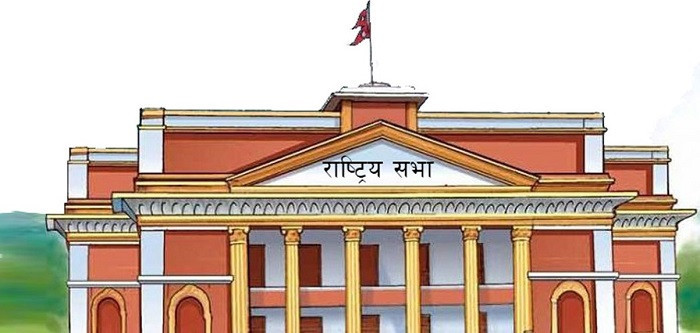The Legislation Management Committee of the National Assembly has unanimously endorsed the Media Council Bill after amending some provisions.
The committee's meeting on Monday has removed the provisions of fine, compensation and punishment from the bill.
The journalists, who are currently active, need not sit for the license examinations but the new ones will have to appear in one, according to the bill. Media houses, however, can recruit even those without the license.
The provision about license examinations, registration and record of journalists in the bill states that conducting license examinations for those wishing to work as a journalist, the curriculum for that and setting minimum qualification will be as decided by the Media Council.
The bill states that the council will collect details of working journalists and keep record.
Minister for Communication and Information Technology Gokul Baskota during the committee's meetings stated that the amount of fine need not be mentioned in the bill.
The bill brought to the parliament had a provision that stated that the council can fine the media house, journalist or publisher Rs 25,000 to Rs 1 million. The provision of the bill was widely criticized by the media sector including the Federation of Nepalese Journalists (FNJ).
"Let's not mention the amount. The council can help reach settlement and the party concerned can go to the court if there is no settlement," Baskota had advised Speaking during the discussion on the bill at the National Assembly last Sunday. "Which court to go to will be chosen by the aggrieved party."
He opined that the council should be given the responsibility of seeing whether code of conduct is complied with and making the media publish rebuttals.
The bill brought by the government had a provision that allowed the council to levy fine in case of code of conduct violation and recommend the district court to take action.
Minister Baskota seemed ready to amend these provisions. He argued that a journalist on a salary of Rs 25,000-50,000 cannot pay a fine of hundreds of thousands. "Let's not fix the amount of fine. It would be better if we mention that it will be as deemed appropriate by the court. Everybody should be ready to accept judicial remedy. Let's make it news organization or media house whatever is better. But which journalist can pay if we say a journalist on a salary of Rs 25,000-50,000 should pay compensation of Rs 100 million?"
He pointed how media houses in India have been shut down when the court has ordered them to pay billions in compensation. He argued that media houses can pay Rs 1 million when billions are being invested in the Nepali media industry but agreed to remove the provision of setting a fine.
He also expressed flexibility on removing the provision of allowing the council to recommend journalists for punishment on other offenses. "The council can order for rebuttal. There can be a case of court remedy as the council's decision may not be appropriate in case of financial or commercial losses," he stated. "We just want that news are not published in vengeance for not getting advertisements in a way that the business is ruined."
The controversial bill that will turn the current Press Council Nepal into Media Council has proposed a fine of Rs 25,000 to Rs 1 million on the media, its publisher, editor and journalist if they seem to have hurt somebody's dignity and prestige.
The current Press Council Act does not have a provision of fine. It only requires publication of the aggrieved party's version, and recommendation to the government to partially or completely stop government's facilities and benefits for a certain period for repeated violation.
The Media Council can also order compensation for the aggrieved person or institution on top of the fine. "The council can also get the aggrieved persons or institutions compensated if they suffer any loss due to the publication or broadcast of the material violating the code of conduct issued by the council," the bill states.
It has also paved the way for punishment against the journalists as per other laws for violation of code of conduct. The council will have to write to the bodies concerned for such legal action.
It also states that punishment for violation of code of conduct will not save the journalists from punishment as per other laws for the same violation. The bill allows the council to receive assistance from foreign individuals and institutions without government permission, even as the government has registered an amendment bill requiring even the National Human Rights Commission to take permission from the Finance Ministry for accepting foreign assistance.
Qualification for chairman of such a powerful council, however, has been limited to bachelor's degree. Only a retired Supreme Court (SC) justice or senior advocate or a journalist who has made significant contribution through journalism can chair the current Press Council. The chairman must have a 10-year journalism experience but members need a 15-year experience.
The bill has tried to establish the Media Council as a government body instead of the quasi-judicial the Press Council is now, and the role of Ministry of Communication and Information Technology has been expanded.
Members are nominated by the speaker of House of Representatives (HoR) and National Assembly chairman as per the current Press Council Act but the government will appoint the chairman, and the ministry members as per the bill.
Six members of the nine-strong council will be appointed by the ministry, with a first-class officer nominated by the ministry, and the Federation of Nepali Journalists chairman being the other members. The bill also allows the government to sack the chairman and members for unsatisfactory performance whenever it wishes.

